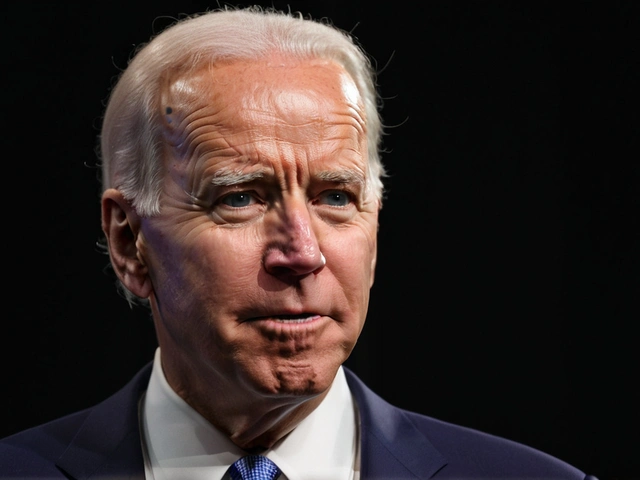The Deepening Complexities of Cyprus-Israel-Lebanon Relations
Hezbollah leader Hassan Nasrallah’s recent warning to Cyprus marks a significant and troubling escalation in the complex relationship between Cyprus, Israel, and Lebanon. Nasrallah has stated that if Cyprus allows Israel to use its harbors and airports in the event of a conflict with Lebanon, Cyprus would be considered a party to the war. This threat took not just the Cypriot government by surprise but also alarmed the international community, raising concerns over potential broader conflicts in the region.
Cyprus, an island nation that has historically prided itself on maintaining a stance of neutrality, now finds itself in a precarious position. President Nikos Christodoulides has been quick to reiterate the island’s neutral stance amidst these rising tensions. He pointed out Cyprus’s humanitarian role in easing the suffering caused by Israel’s offensive in Gaza, including the facilitation of humanitarian corridors.
Nasrallah's Threats and Their Broader Implications
According to analysts, while Nasrallah’s threats appear directed at Cyprus, they likely aim to send a broader message to the European Union. There are growing fears that the ongoing tensions at the Gaza border could escalate into a larger conflict involving Lebanon and Israel. The European Union has made it clear that any attack on Cyprus would be interpreted as an attack on the EU itself, thereby potentially drawing in more international involvement in the conflict.
Nasrallah’s statement underscores the fragile balance of regional power and the potential for isolated threats to evolve into more widespread conflicts. Speculations are rife about the extent to which Hezbollah is prepared to act on these threats and the international community’s role in preventing such escalations.
The Strengthening of Cyprus-Israel Ties
In contrast to these tensions, Cyprus and Israel have seen a significant strengthening of their bilateral relations in recent years. Since 2010, the two countries have cooperated closely on various fronts, notably in defense and intelligence. Israeli special forces have utilized Cypriot territory for training, and Cyprus has benefited from acquiring Israeli defense technology, including the famed Iron Dome system.
Moreover, the exchange of defense technology is just one facet of the growing ties. Cyprus has hosted several Israeli companies, including those involved in creating advanced spyware. These commercial and military connections have solidified the relationship between the two nations, providing Cyprus with valuable technological and strategic resources.
Economic and Social Links
Beyond defense and intelligence, the closer ties between Cyprus and Israel are also evident in economic and social relationships. Cyprus has become an attractive destination for wealthy individuals from both Israel and Lebanon seeking stability, contributing to a dynamic and interconnected real estate market. Cities such as Limassol, Larnaca, and Paphos have seen significant real estate investments from individuals hoping to secure a stable environment for their families and assets.
Additionally, Israel has shown interest in establishing a strong foothold in Cypriot infrastructure. Notably, there are ongoing discussions about Israel potentially purchasing a terminal in the Larnaca port. This move would act as a safeguard to ensure continued operations in case of disruptions at the Haifa port, further solidifying the strategic partnership between Cyprus and Israel.
The Precarious Path Forward
The developments over the past years illustrate the increasingly complicated and intertwined relationships between Cyprus, Israel, and Lebanon. The threat from Hezbollah has put Cyprus in the unenviable position of balancing its role as a neutral entity, while simultaneously maintaining its strategic alliances. The implications of these threats are far-reaching not only for Cyprus but also for the broader geopolitical landscape of the region.
As Cyprus navigates this precarious path, the responses from the international community, particularly the European Union, will be crucial. The EU's stance that any attack on Cyprus equates to an attack on the entire union indicates a strong commitment to defending its member states. This unified front could play a significant role in deterring potential aggressions and maintaining stability in the region.
The Role of International Diplomacy
Diplomacy will undoubtedly play a critical role in resolving these tensions. Efforts will need to be made to engage all parties in dialogue, stressing the importance of regional stability and the potential dangers of escalation. Cyprus, with its historical roles as a mediator and its strategic geographical position, could find itself at the center of these diplomatic efforts.
The situation is a reminder of the delicate balance of power in the eastern Mediterranean and the volatile nature of regional politics. The international community will be closely monitoring the developments, with hopes that diplomatic channels will prevail over threats and conflict. The actions taken by regional leaders in the coming weeks and months will be pivotal in determining the future dynamics between Cyprus, Israel, and Lebanon.
Securing a Stable Future
While the immediate future may seem uncertain, there are opportunities for positive outcomes. Strengthening diplomatic relationships and finding common ground on issues of mutual concern can lead to a more secure and cooperative regional environment. For Cyprus, maintaining its stance of neutrality, while leveraging its strengthened relationships with both Israel and European allies, will be key.
The importance of Cyprus’s role in humanitarian efforts cannot be understated. By continuing to facilitate aid and support in conflict zones, Cyprus not only reinforces its neutral position but also highlights its commitment to peace and stability. Such efforts could serve as a foundation for broader diplomatic engagements and regional cooperation.
In conclusion, the Cyprus-Israel-Lebanon triangle remains a testament to the complexities of modern international relations. The actions of the leaders and the responses from the international community will shape the trajectory of this delicate balance. As the world watches, the hope is that dialogue and diplomacy will triumph over threats and hostility, paving the way for a stable and peaceful future in the region.






This is actually a really hopeful situation if you think about it. Cyprus is playing the long game-staying neutral but still helping people. That’s not weakness, that’s wisdom. 🙌 We need more leaders like this in the world.
People forget that war is not just about armies. It’s about ports. It’s about airports. It’s about who lets who pass. Cyprus is stuck between a rock and a hard place. But maybe that’s where peace starts-with someone who just says no to choosing sides.
Oh wow, Hezbollah is threatening a tiny island nation because they might let Israel use a harbor? 🤦♀️ Next they’ll ban Cyprus from selling souvlaki to Israelis. Real sophisticated strategy there.
Cyprus is doing the right thing. Stay neutral. Help people. Build bridges. Not walls. 🤝
this is all a distraction. the real plan is for israel to take cyprus and turn it into a secret drone base. they already own half the real estate in limassol. and dont even get me started on the spyware companies. the eu is asleep at the wheel. #conspiracy
I’m not crying, you’re crying. This is the most heartbreaking thing I’ve read all week. A small country trying to hold peace together while giants throw tantrums. If Nasrallah thinks he can scare Cyprus into silence, he doesn’t know what courage looks like. This isn’t just politics-it’s humanity.
Honestly the whole thing is just geopolitical theater. Cyprus has been a de facto Israeli satellite since 2015. The 'neutrality' is a PR stunt. And Nasrallah? He’s just mad because he can’t reach Haifa anymore. The EU’s 'attack on Cyprus = attack on us' is just them flexing. No one’s gonna war over a port terminal
It’s interesting how Cyprus is quietly becoming a hub-not just for defense tech, but for people fleeing instability. Real estate, aid, intelligence, diplomacy… all these threads are weaving something new. Maybe this isn’t just about avoiding war. Maybe it’s about building a different kind of safety net.
Neutral does not mean passive. Cyprus is exercising strategic restraint. A masterclass in diplomatic posture.
So let me get this straight. Israel gets to use Cyprus’s ports, but Lebanon can’t? That’s not neutrality. That’s picking a side. And now they’re pretending to be the moral center? Please.
THEY’RE ALL PLAYING GAMES. NASRALLAH ISN’T THREATENING CYPRUS-HE’S THREATENING THE WEST. AND CYPRUS? THEY’RE JUST A PAWN. THE REAL VICTIMS? THE FAMILIES IN GAZA. THE CHILDREN WHO DON’T KNOW WHY THE WORLD IS STILL AT WAR. THIS ISN’T POLITICS. THIS IS A MORAL FAILURE.
Neutrality is a myth when your ports are used for weapons. The moment Cyprus allowed Iron Dome shipments, it became a combatant. Nasrallah is just the first to say it out loud. The rest of us just pretend we didn’t notice.
We need to stop seeing this as a conflict between nations and start seeing it as a call for collective responsibility. Cyprus isn’t just holding the line-it’s showing us how to hold the line with dignity. Let’s support that. Not with words, with action.